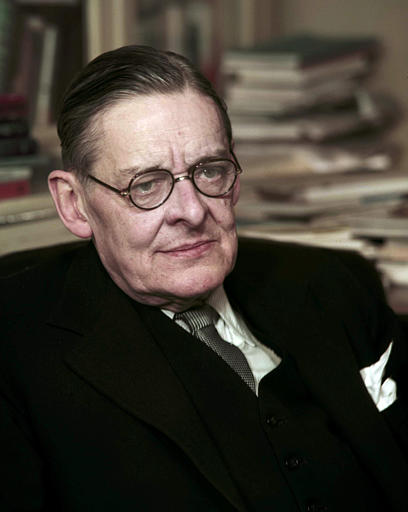
. . . damnation itself is an immediate form of salvation — of salvation from
the ennui of modern life, because it at last gives some significance to
living.
This comes via Tony D'Ambra and his films noir web site. Its application to film noir is perhaps obvious, but it has a profound relevance to the modern age in general. Without knowing the quote, I wrote something similar in a previous post on this site, WHORES: A VALENTINE'S DAY MEDITATION, about Baudelaire's obsession with prostitutes. Eliot's observation comes from an essay on Baudelaire and it sheds a terrifying light on many otherwise baffling phenomena of our time. It explains why middle-class American teens sometimes go ballistic and murder their schoolmates, then kill themselves. It explains why hopeless Palestinian kids strap on bombs and martyr themselves in order to kill Israeli civilians.
Our culture values survival and comfort above all other considerations, and denies the horrifying truth that life without meaning, without transcendent purpose, is worse than death. Anything that promises meaning, even if it's the meaning inherent in damnation, or in a spectacular pursuit of oblivion, is better than a life spent, as Blake puts it, “wailing on the margin of non-entity.”

I first came across the quote in James Naremore's book on film noir, More Than Night (UCLA, 1998), in a chapter titled “Modernism and Blood Melodrama”, which explores the noir sensibility and the English literary critique of modernity found in the writings of Eliot, Joseph Conrad, and of course, Grahame Greene in the first half of the last century.
Your post strongly resonates in this context, and a quote from Naramore on Greene's film adaptation of his noir novel, Brighton Rock, is relevant:
“The same nexus of interests becomes even more evident in Brighton Rock (1938), Greene's strangest, most serious, and certainly most noir thriller, which in its English edition was not classified as an entertainment. The plot of this unusual novel involves a gang war in the English coastal resort of Brighton: a small-time journalist named Hale indirectly helps a Jewish crime lord to kill off a rival mobster named Kite. In retaliation, Hale is
kidnapped and sadistically murdered by Pinkie Brown, a boyish, baby-faced killer who regards Kite as his surrogate father. A barmaid named Ida Arnold, who enjoyed casual sex with Hale on the day of his death, becomes a sort of detective or agent of vengeance. With Ida's assistance, the police corner Pinkie—but not before he seduces and marries an innocent working girl named Rose in order to prevent her from revealing evidence that might incriminate him. In a scene reminiscent of countless gangster movies, the young psychopath attempts to evade apture and dies a spectacular death, leaving the pregnant Rose behind to face a grim future. Brighton Rock 's events may seem generic, but its mood is reminiscent of pictures such as Hôtel du Nord, its epigraph comes from The Witch of Edmunton, and its themes are indebted to Eliot's commentary on the poetry of Charles Baudelaire.
Wow — dark stuff. I'm going to have to read “Brighton Rock”.